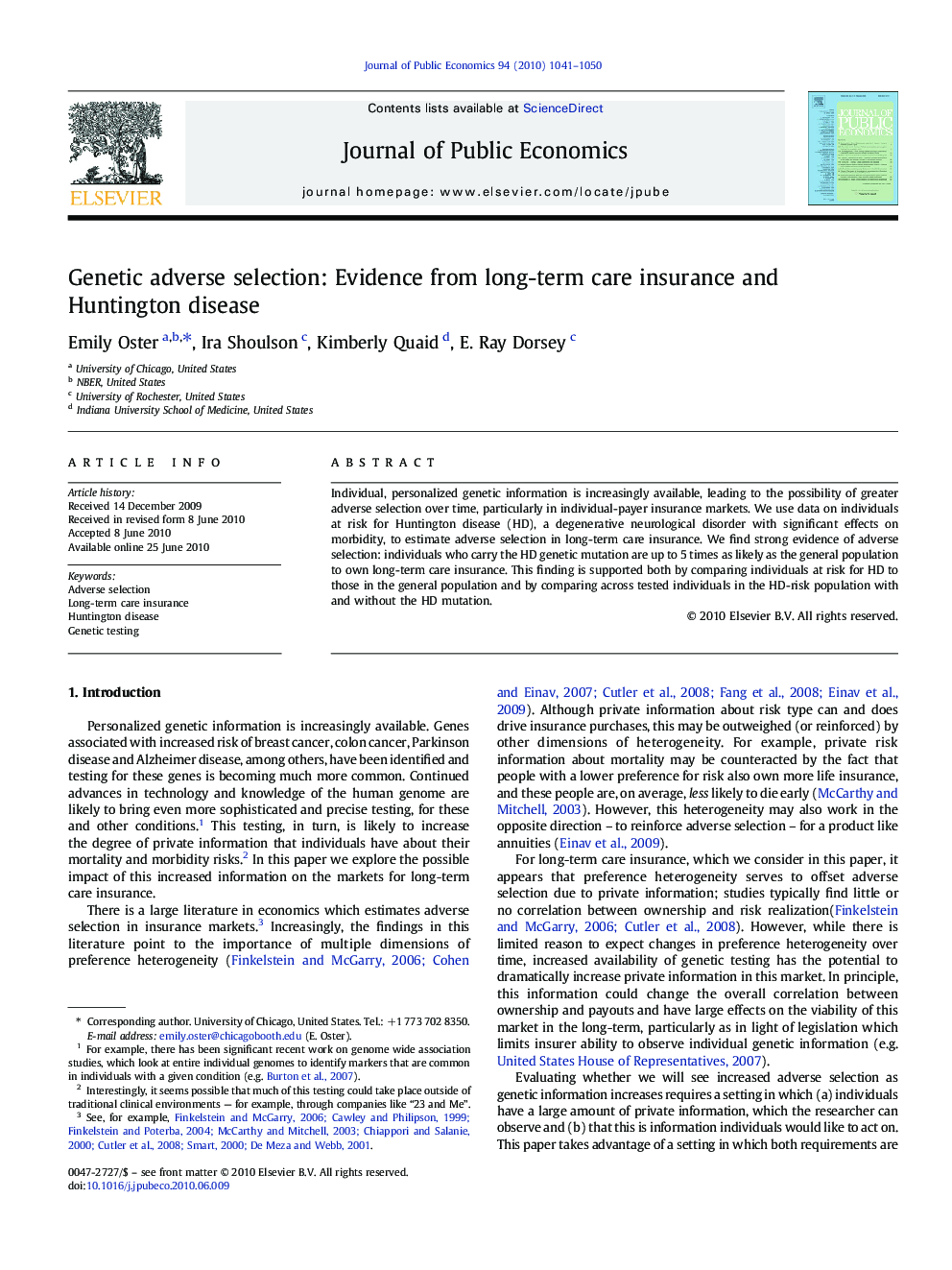| Article ID | Journal | Published Year | Pages | File Type |
|---|---|---|---|---|
| 969818 | Journal of Public Economics | 2010 | 10 Pages |
Individual, personalized genetic information is increasingly available, leading to the possibility of greater adverse selection over time, particularly in individual-payer insurance markets. We use data on individuals at risk for Huntington disease (HD), a degenerative neurological disorder with significant effects on morbidity, to estimate adverse selection in long-term care insurance. We find strong evidence of adverse selection: individuals who carry the HD genetic mutation are up to 5 times as likely as the general population to own long-term care insurance. This finding is supported both by comparing individuals at risk for HD to those in the general population and by comparing across tested individuals in the HD-risk population with and without the HD mutation.
